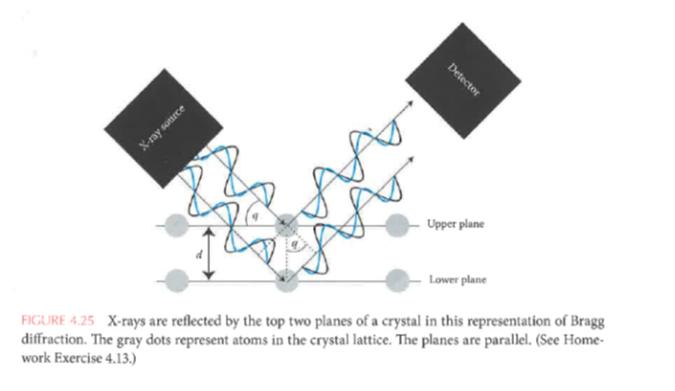Question
A given crystal structure (such as NaCl) can be represented as consisting of planes of atoms, as shown below. A beam of x-rays can be
A given crystal structure (such as NaCl) can be represented as consisting of planes of atoms, as shown below. A beam of x-rays can be reflected off the crystal, where the some of the beam penetrates through the atoms of the upper layer and strikes atoms in the lower plane. A pair of incident x-rays from an x-rays source is reflected from the crystal as shown and into an x-ray detector.
a. How much farther does the beam reflected from the lower plane travel from the source to the detector than the one reflected from the upper plane?
b. If the beam have a wavelength , under what conditions will the two reflected beams (from adjacent planes) interfere with each other (i.e., have maxima at the same points)?
c. The relationship derived in part (b) was first proposed by WL Bragg (1890-1971). If we can experimentally measure the diffraction angle and the know the wavelength used, what feature of the crystal can be determined with this technique?

X-ny sonrce Upper plane FIGURE 4.25 X-rays are reflected by the top two planes of a crystal in this representation of Bragg diffraction. The gray dots represent atoms in the crystal lattice. The planes are parallel. (See Home- work Exercise 4.13.) Lower plane Detector
Step by Step Solution
3.47 Rating (167 Votes )
There are 3 Steps involved in it
Step: 1
Required solution more explaination 1 Beam reflected from lower pla...
Get Instant Access to Expert-Tailored Solutions
See step-by-step solutions with expert insights and AI powered tools for academic success
Step: 2

Step: 3

Ace Your Homework with AI
Get the answers you need in no time with our AI-driven, step-by-step assistance
Get Started


